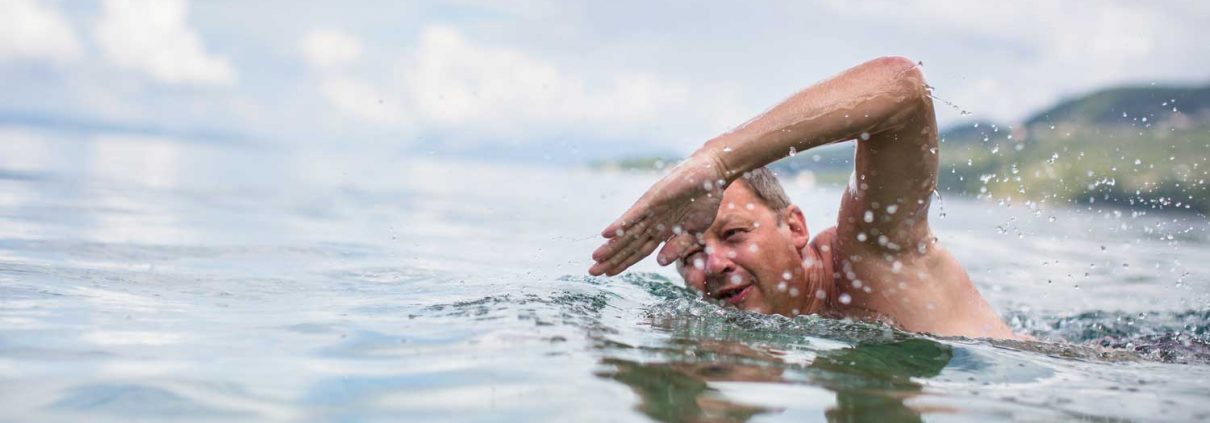Take Note of Water Safety for Older Adults
Whether you are swimming, doing water aerobics, or just relaxing, the hot months of summer present plenty of opportunities to cool off and have fun in the water.
But older adults should be extra careful when enjoying these activities. Being aware of the dangers of water activities and how to prevent accidents can help older adults stress less and stay safe.
Read on to learn how to help your loved one stay safe in the water.
Open water hazards
Lakes, beaches and pools can be the ultimate way to relax and spend time with family and friends, but older adults should be cautious of open water hazards. If your loved one is out for a dip or exercising in a water aerobics class, be sure they’re swimming with a friend — you never know when they might get a cramp or start feeling fatigued.
The Approved Senior Network also recommends seniors limit more intense exercise when they first begin enjoying the water. Encourage your loved one to talk with their doctor about any water risks that might be specific to their health needs.
“Open water can be a great stress reliever and an opportunity to make good memories,” said Scott Hansen, executive director of Lake Ridge Senior Living. “But your loved one should be aware of the risks and take precautions to have the best, safest experience.”
Temperature
Whether your loved one is bathing or sitting outside the pool, it’s important to keep tabs on temperature. In addition to burns, hot water can direct blood flow to the skin and away from the internal organs, causing strain on the heart.
When water is too cold, it can have the opposite effect and require the heart to work harder than normal to pump blood throughout the body. According to Senior Health 365, “Immersing in water, even a degree or two colder than the core body temperature, can lead to hypothermia in the elderly.”
Experts recommend keeping water one or two degrees higher than your loved one’s regular body temperature — but ask them what feels comfortable.
Heart rate
Besides temperature, heart rate is another factor to consider when thinking about water safety for older adults. The average resting heart rate for seniors is 60 to 100 beats per minute. Have your loved one talk to their doctor to see what heart rate is safest for them, and monitor it regularly when in the water. Take note if your loved one is feeling faint or lightheaded, as these can be signs of an irregular pulse.
Bath and shower
“Up to 80 percent of falls in the home are in the bathroom,” said Consumer Affairs. In addition to more active activities, older adults also need to be careful during their bath or shower routine. Slips and falls are common, but you can do several things to prevent these and other hazards.
A few safety tips include replacing sliding doors with a shower curtain so they can enter the tub/shower area more easily, making sure the bathroom is well lit, using gripping floor mats, installing a handheld showerhead, adding grab bars, and using a tub bench or seat.
Water plays a big role in our lives — whether it’s keeping us clean, helping us stay fit, or providing a relaxing environment. Review these safety concerns and tips with your loved one so they can stay safe and have fun in the water.
This article was previously published by the Daily Herald and republished here with permission.





